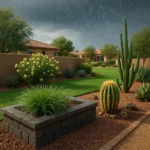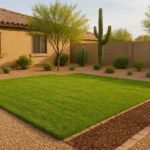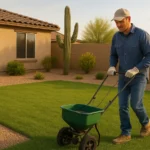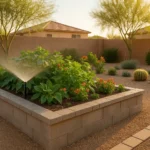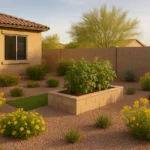Summer storms in Gilbert can be a blessing and a curse for your garden. On one hand, the rain provides much-needed moisture to your plants. On the other hand, if your soil isn’t prepared to absorb that water efficiently, it can lead to waterlogging and damage to your plants. But don’t worry, friends. I’m here to guide you on how to help your soil absorb water effectively during these storms.
Understanding the Soil in Gilbert
The first step in managing your soil for summer storms is understanding the type of soil we’re dealing with in Gilbert. Our region is known for its heavy clay soil. While clay soil has many benefits, like holding nutrients well, it can become compacted easily. This compaction reduces the soil’s ability to absorb water, leading to runoff or pooling during heavy rains.
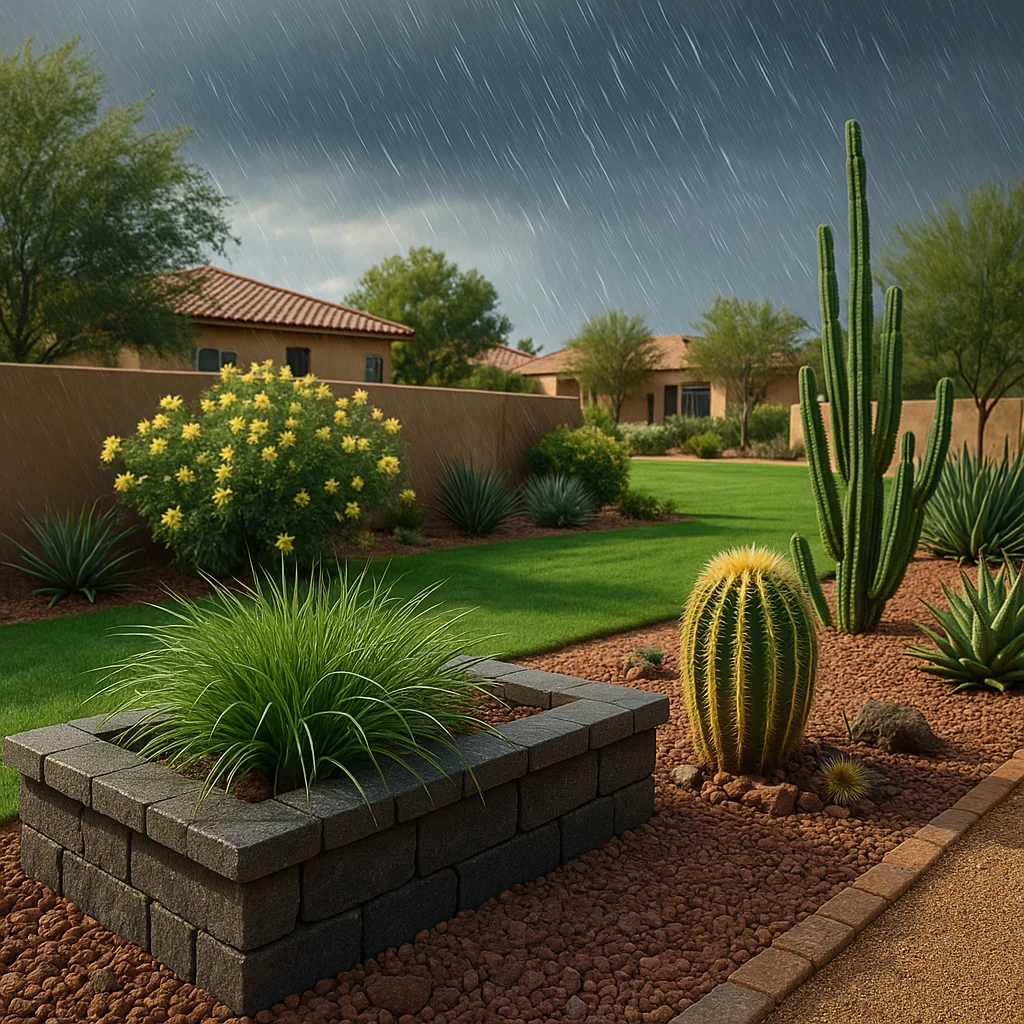
Improving your clay soil’s structure will enhance its water-absorbing capabilities. Adding organic matter, like compost or well-rotted manure, can help. These materials improve the soil’s structure, making it less compact and more capable of absorbing water. They also add nutrients to the soil, benefiting your plants.
Implementing Proper Irrigation Techniques
Proper irrigation techniques can prepare your soil for summer storms and help prevent waterlogging. Drip irrigation systems are ideal for our Gilbert soil. They deliver water directly to the roots of your plants, encouraging deep root growth. This can help your plants withstand heavy rainfall better.
As a local irrigation expert, I’d recommend installing a smart irrigation system. These systems are designed to adapt to the weather conditions, reducing water when it’s raining and increasing it during dry periods. This helps to maintain the right moisture balance in your soil.
“In Gilbert, smart irrigation is a game-changer. It helps manage your garden’s water needs efficiently, even during our unpredictable summer storms,” says local contractor John.
Creating Rain Gardens and Swales
Another effective way to manage stormwater in your Gilbert garden is by creating rain gardens and swales. A rain garden is a shallow, planted depression designed to hold water temporarily during a storm. The plants in the garden help to absorb the water, reducing runoff.
Swales, on the other hand, are shallow ditches designed to slow, capture, and direct stormwater. They can be planted with water-loving plants to help absorb the water. These techniques not only help manage stormwater but also add beauty to your garden.
Mulching and Ground Cover
Mulch is a gardener’s best friend, especially during summer storms. It helps prevent soil erosion and compaction, improving your soil’s water absorption. Organic mulches, like wood chips or straw, are ideal. They gradually break down and improve your soil’s structure and fertility.
Planting ground cover can also help. These low-growing plants protect the soil from erosion and help absorb excess water. Some ground cover plants also add nutrients to the soil, further improving its health and water absorption.
Soil Aeration
Compacted soil struggles to absorb water effectively. Aerating your soil can help solve this problem. This process involves creating small holes in the soil to allow air, water, and nutrients to penetrate the soil more easily. It can be done using a garden fork or a lawn aerator.
Soil aeration is best done in the cooler months to prepare your soil for the summer storms. It’s also a good idea to add a layer of compost or other organic matter after aeration to further improve your soil’s structure and fertility.
Seeking Professional Advice
Managing your soil for summer storms in Gilbert can be challenging. If you’re struggling, don’t hesitate to seek professional advice. Local garden centers, extension services, and landscape contractors have a wealth of knowledge and experience. They can provide specific advice and solutions for your garden and soil type.

